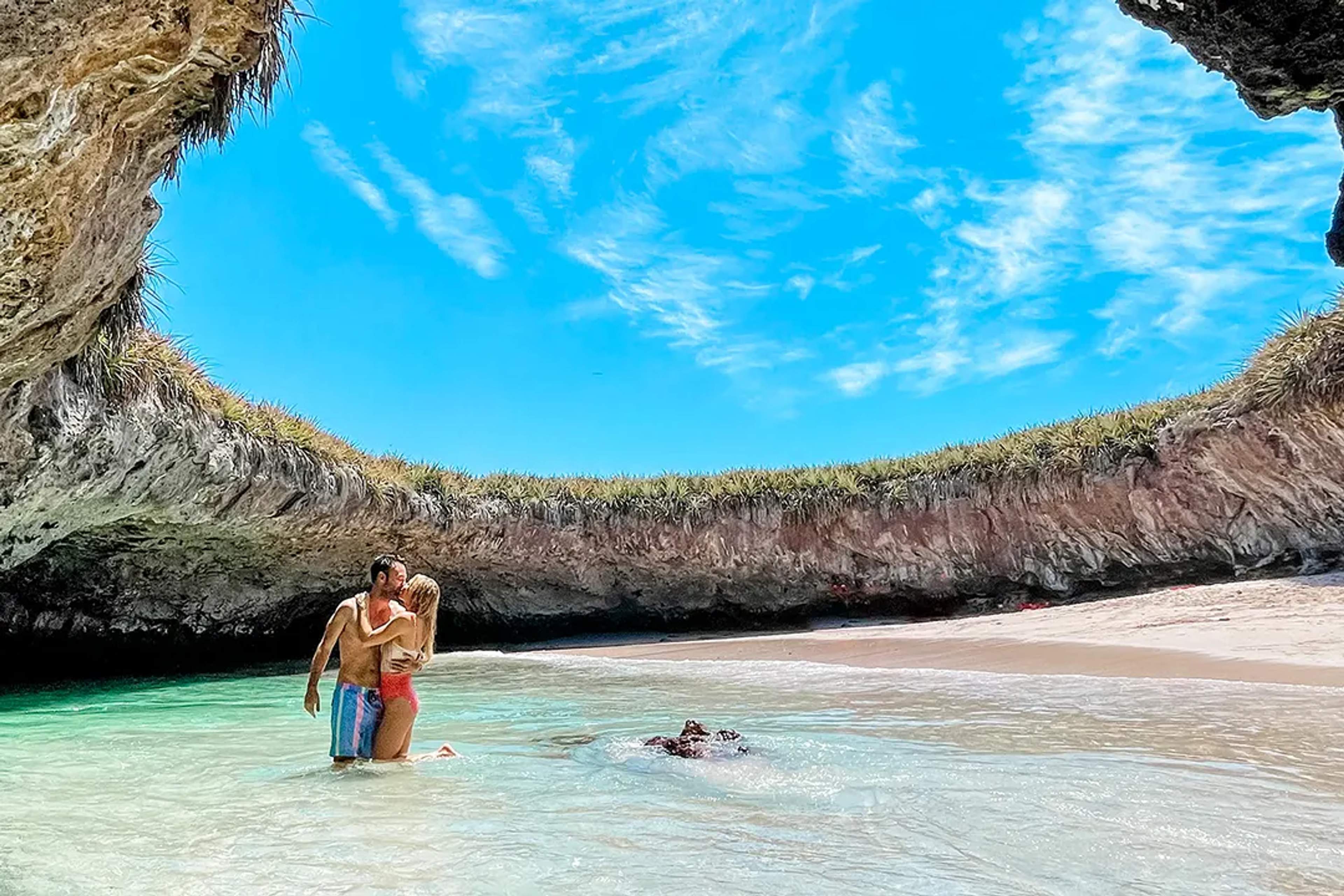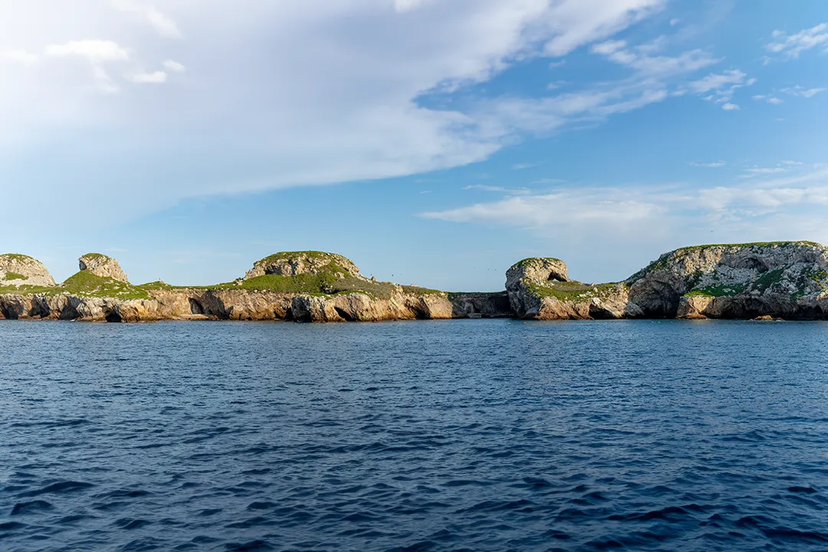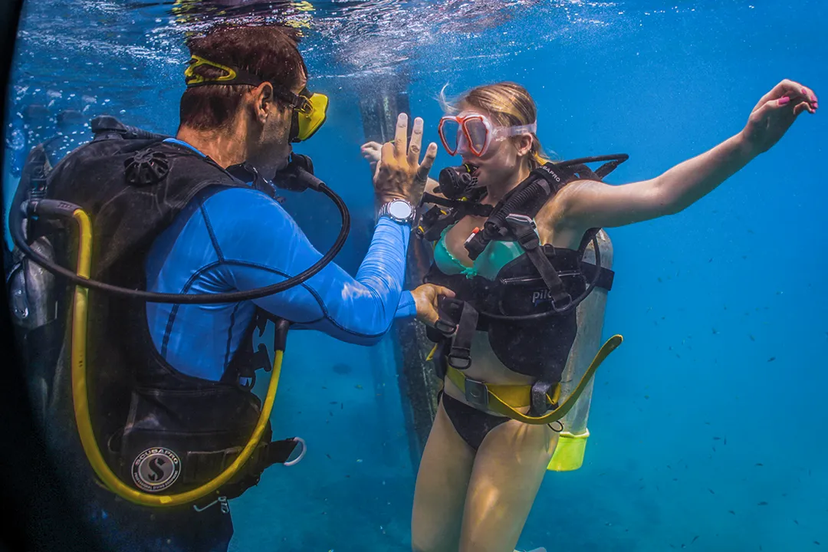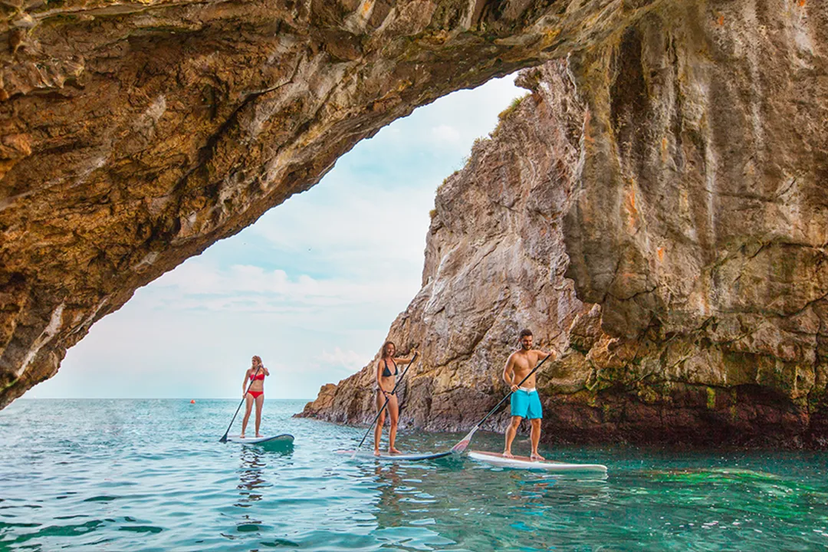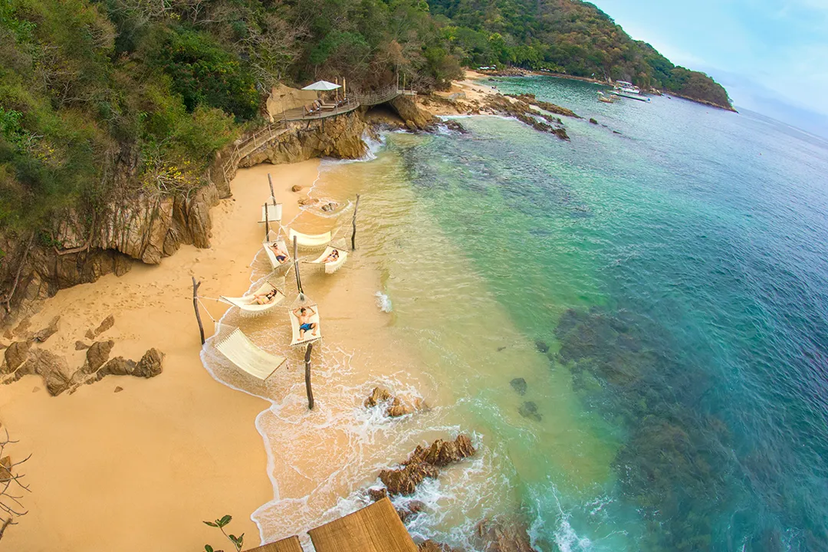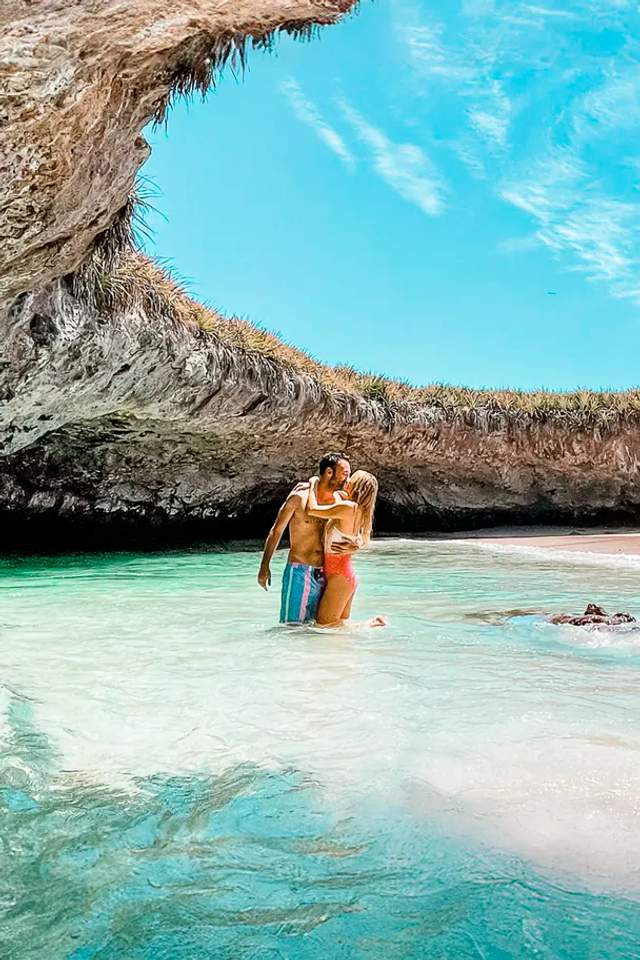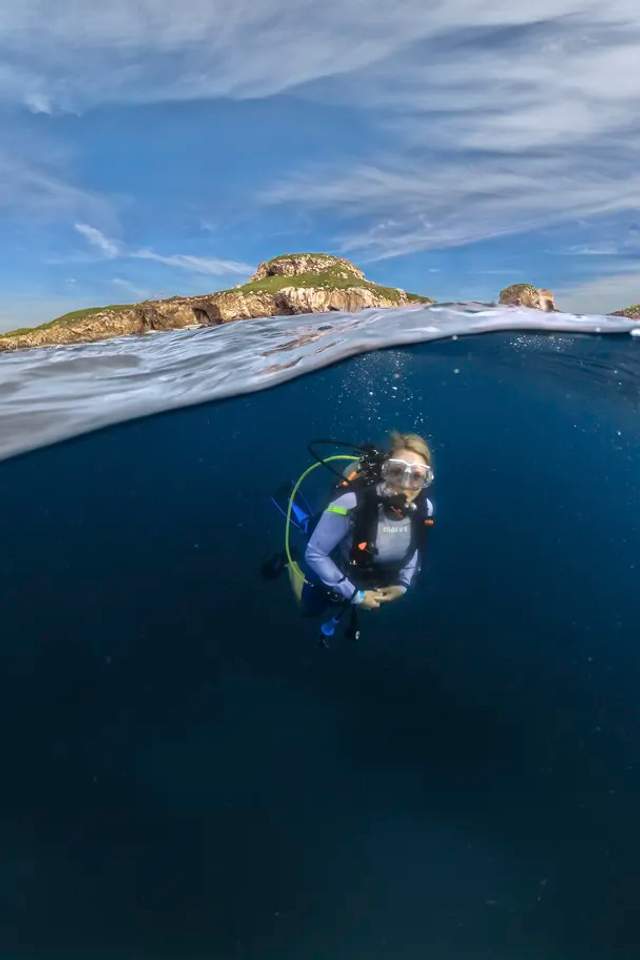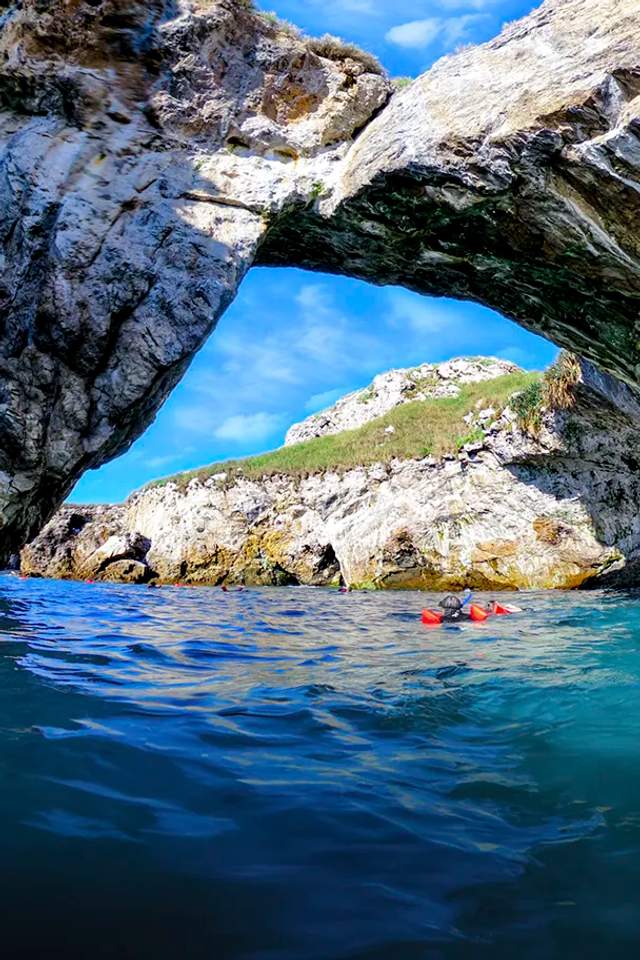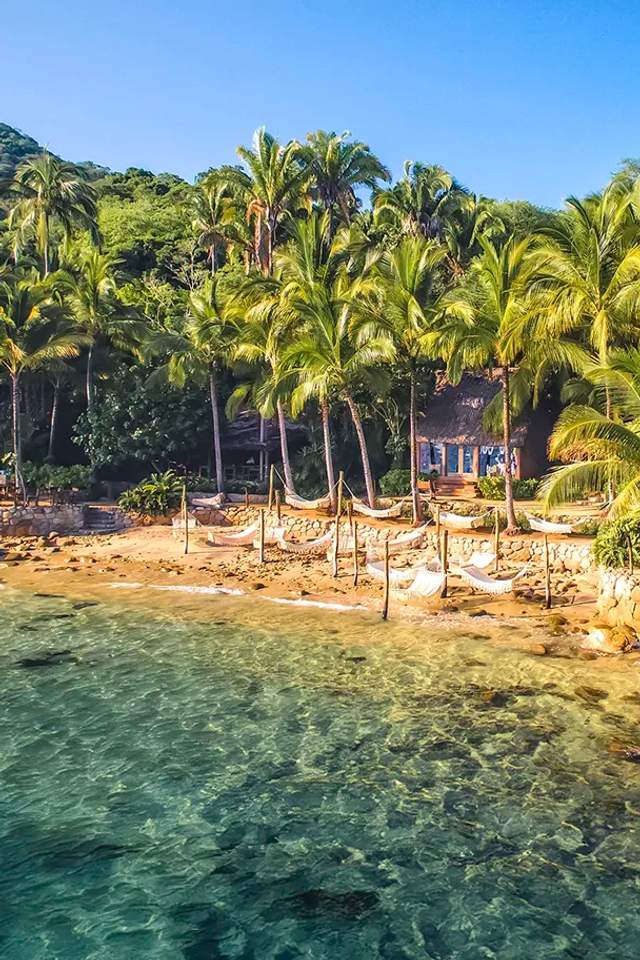EVERYTHING YOU NEED TO KNOW ABOUT MEXICO'S HIDDEN BEACH IN THE MARIETA ISLANDS
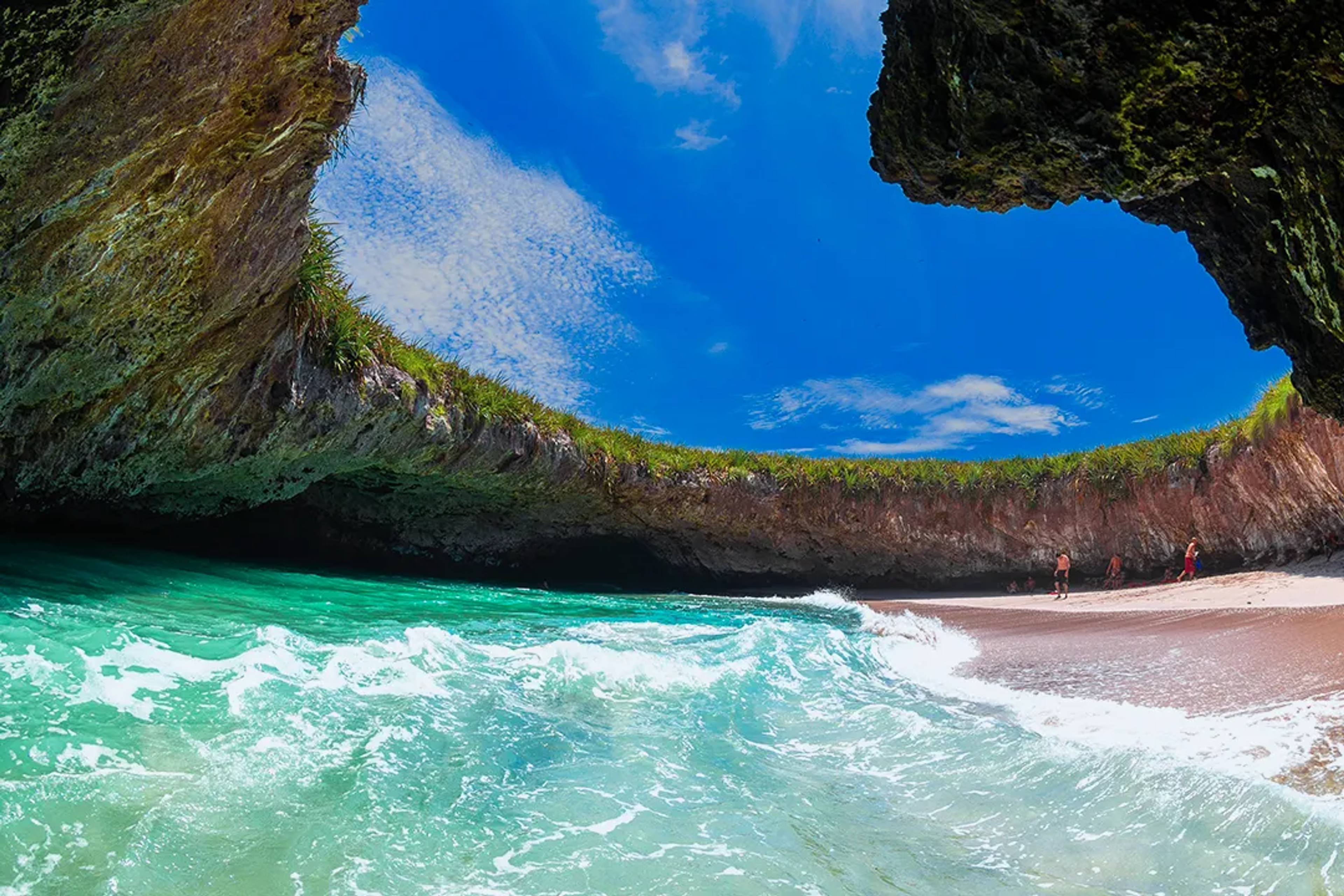
You've probably seen a photo of this stunning, must-see destination even if you don't recognize the name. Playa del Amor, the “Lover's Beach” more typically called the Hidden Beach, is a secluded sandy cavern on one of the islands that make up Marietas Islands National Park, located on the north end of Bahía de Banderas, an hour northwest of Puerto Vallarta and only fifteen minutes from Punta Mita, Nayarit.
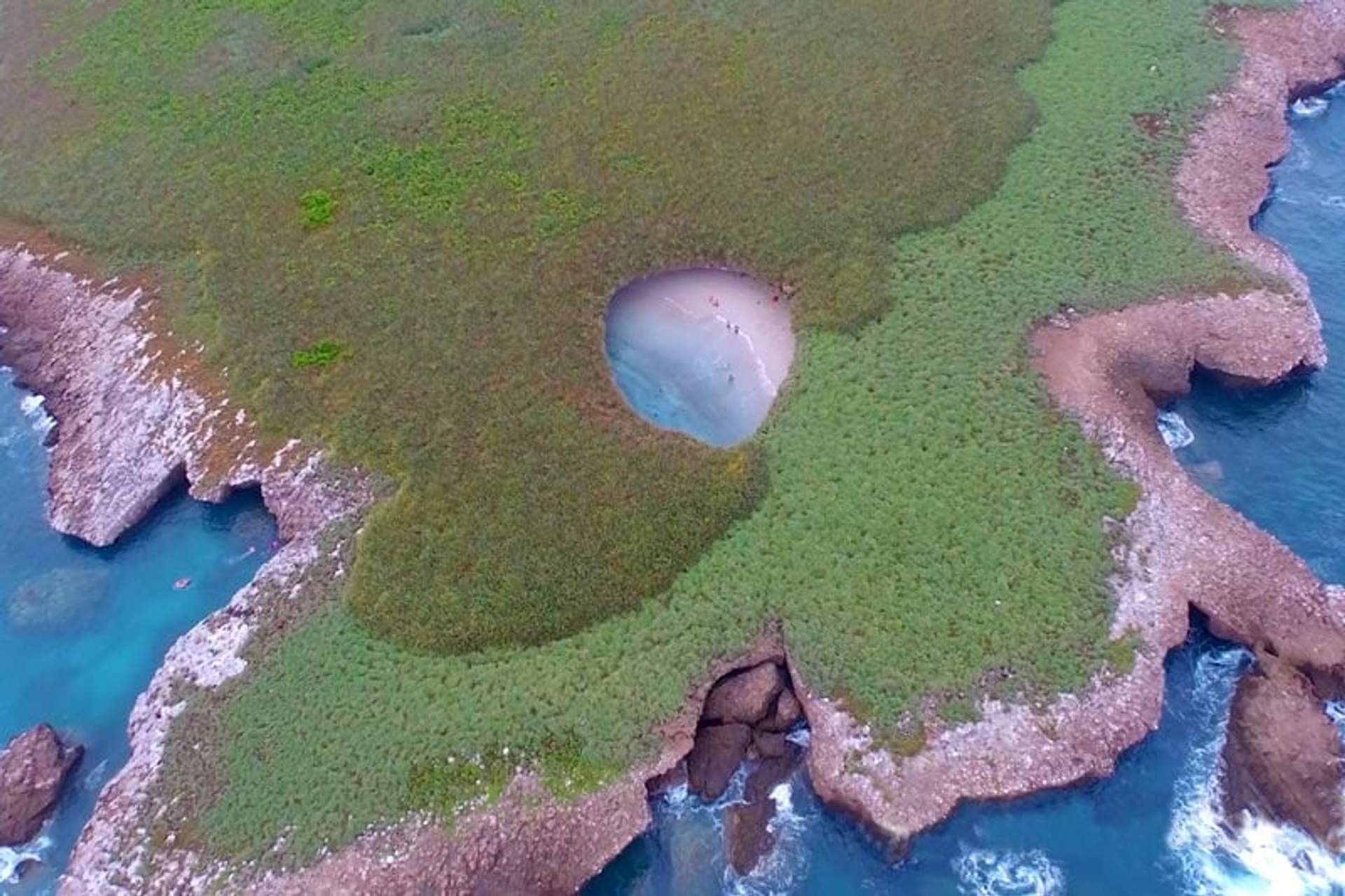
This unique scenario is part of the state of Nayarit, right in the coastal strip called Riviera Nayarit. The archipelago itself is a natural wonder formed by volcanic activity. Hidden Beach is home to many different types of coral and reef fish, sea turtles, dolphins, manta rays, and eels.
In winter, humpback whales can be seen frolicking near the shores of Hidden Beach. But the Marieta Islands' Hidden Beach is the feature that inspires tens of thousands of tourists from around the world to make the trek.
Why? The Hidden Beach is so beautiful and magical that many people, upon seeing photographs, assume it can't be real. That's why the best way to experience it is to head to the Marieta Islands and see it for yourself.
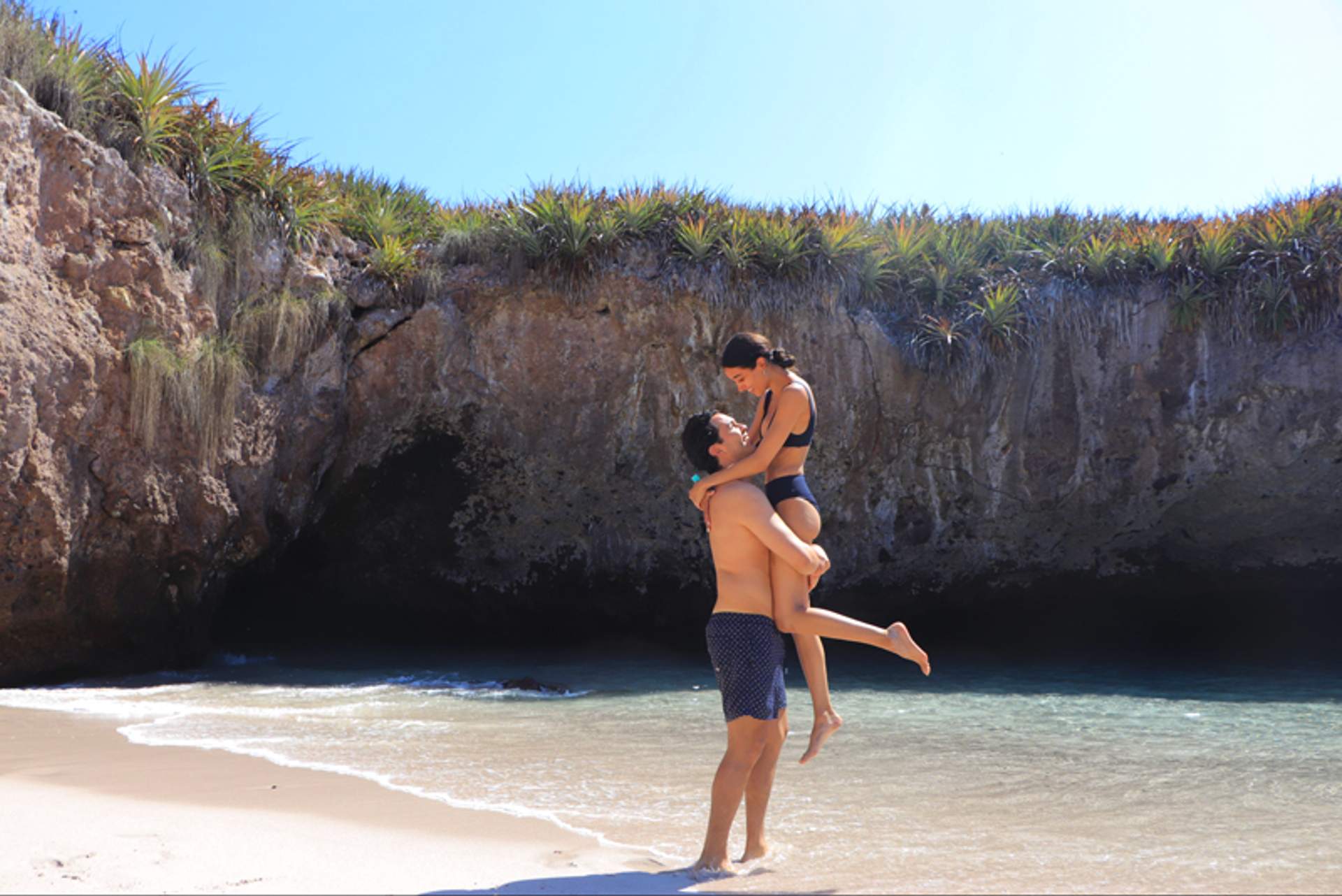
WHAT IS HIDDEN BEACH?
Picture a cave, open to the sky, in which a white sand beach meets the brilliant blue waters of the Pacific Ocean. An obvious name for this gem, Hidden Beach is a must-see for locals and tourists alike.
Once upon a time, this section of Islas Marietas National Park would have been enclosed - invisible from both sea and air - but don't make the mistake of assuming that this wonder of the world is a natural one.
More likely than not, the opening that lets the sun stream onto Hidden Beach was created long ago by artillery tests.
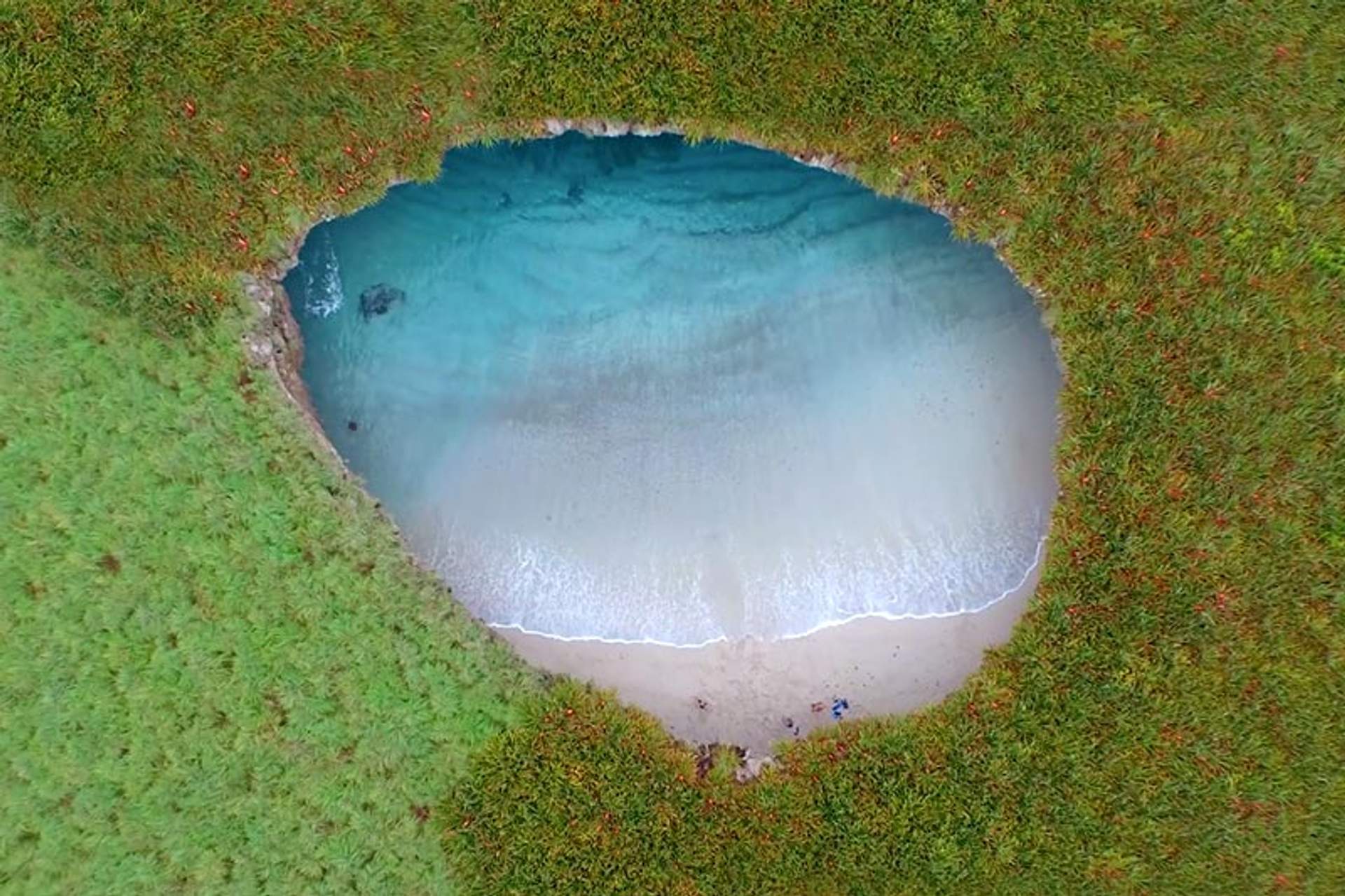
The Marieta Islands had no human residents, which made them an ideal location for bomb testing in the first half of the 20th century.
That's why many of the archipelago's fascinating caves and rock formations are likely man-made. But in the 1960s, scientist Jacques Cousteau began protesting the destruction of the island's ecosystem, and eventually, in 2005 the islands were christened Parque Nacional Islas Marietas. Once peace returned to the islands, so did the remarkable flora and fauna!
WHAT MAKES THE HIDDEN BEACH SO SPECIAL
The Hidden Beach is a private oasis of crystal turquoise waters and golden sand, tucked inside a lush, tropical island. Accessible only when the tide is low, the beach itself is a dreamer's (or a lover's) paradise - though it is less of a secret nowadays than it once was.
But does that matter when you're basking on the beach as the sun streams in through the vegetation-lined cave roof? You won't be alone but you'll feel like you're a million miles away from your everyday life.
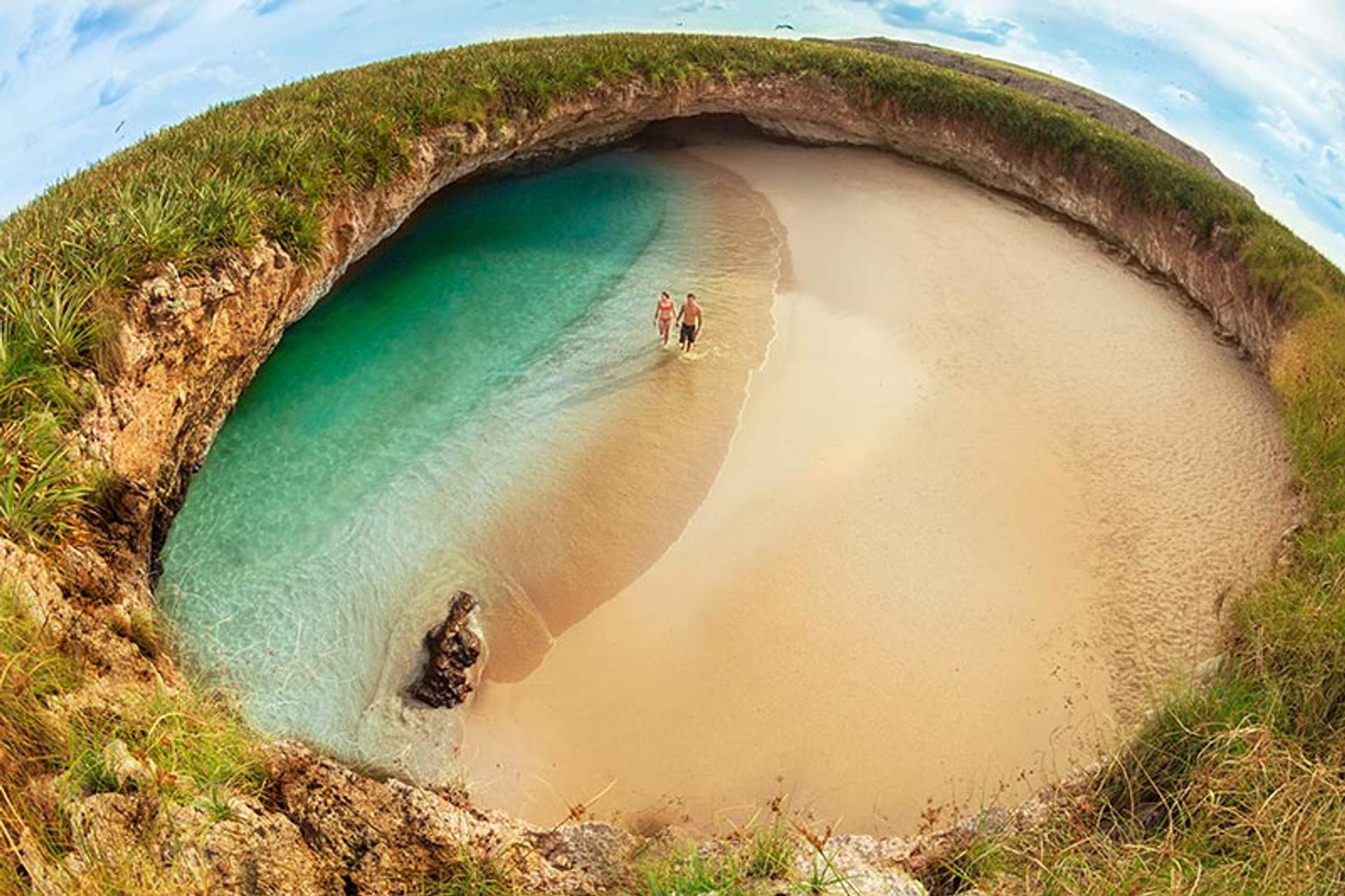
One thing that fosters this sense of isolation is the fact that Hidden Beach is only accessible through a water tunnel that must be swum with a snorkeling mask but no fins (to protect the delicate sea bed).
Since safety is our first concern, you will be equipped with a helmet and life jacket to make it through the rock arch.
It's relatively easy to traverse (there are approximately six feet of clearance above water level) but some visitors do find moving against the Pacific's currents tricky so the Hidden Beach can feel less like a destination and more like a reward. As you might understand, good swimming abilities and excellent physical condition are a must.
VISIT ISLAS MARIETAS NATIONAL PARK
There are two ways of visiting the Marietas Islands:
1. As part of the Marietas Islands Eco Discovery tour, a 7-hour ecotourism excursion that will comfortably take you to enjoy snorkeling around the islands, to then transport you to the gorgeous Majahuitas beach, where you can lie down to rest and sunbathe for a while or have fun with water sports such as kayaking, paddleboarding or riding the inflatable banana. It is important to mention that this tour does not go to Hidden Beach. If that's what you're looking for, keep reading.
2. In case you are only interested in taking that iconic photo at Lover's Beach, then the Hidden Beach Island Discovery tour, is the option for you. This 5-hour excursion will take you to Marietas Islands in a speed boat.
Once there, you'll have to jump from the boat and swim through the rock arch to get to the narrow sand back commonly known as "the hidden beach".When booking, keep in mind that, due to federal regulations, time inside Hidden Beach is limited to 20 minutes.
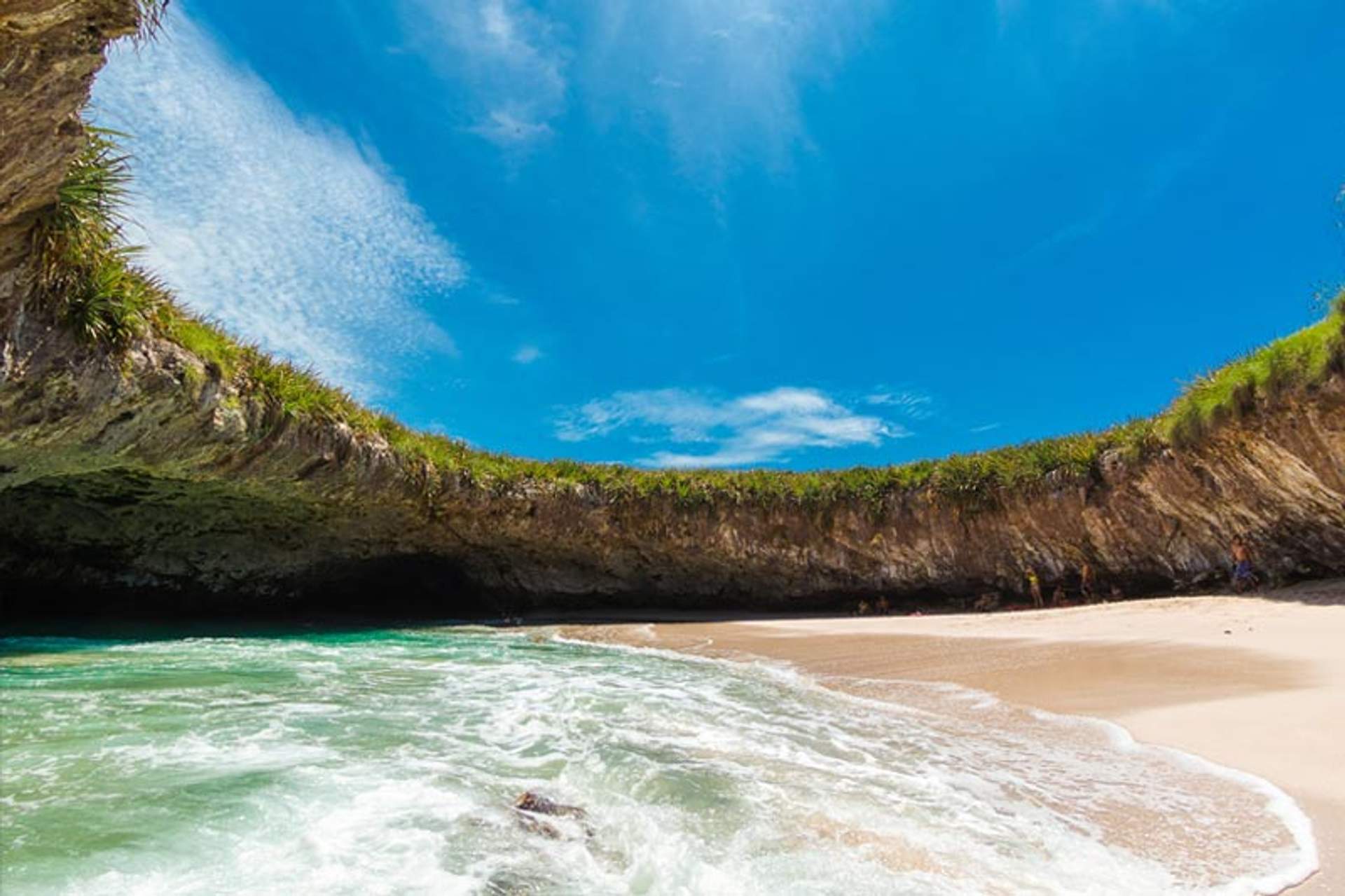
Simple, non-invasive activities in and around the Marietas Islands are all that are allowed in this national park to protect flora and fauna from the type of devastation that once plagued the archipelago. The rest of the islands are off-limits to visitors.
The Marieta Islands' national park status means there is no fishing or hunting, and also that visitors must pay a national park fee that goes toward conserving this part of the Mexican national heritage.
Conservation efforts have included temporary closures of the islands to allow time for coral replanting and finding ways to limit the impact visitors have on the islands' natural beauty and the habitats of the 100 bird and fish species that call the islands home.
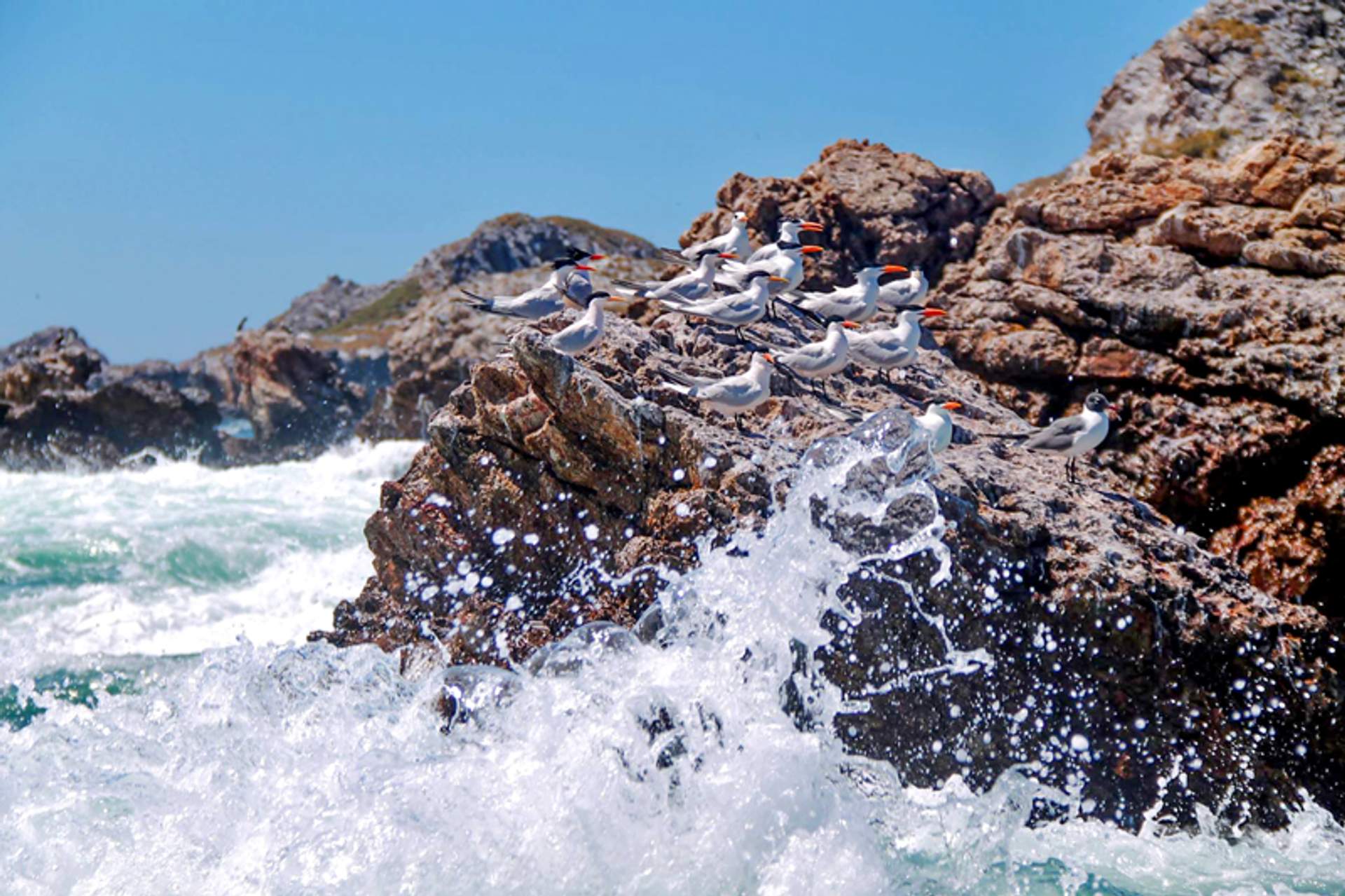
HOW TO GET TO HIDDEN BEACH
Vallarta Adventures offers tours to Hidden Beach from Puerto Vallarta. The hour-long ride to Marieta Islands National Park from Puerto Vallarta is a pleasant journey that culminates in an exciting (but safe) swim against the current through the extraordinary sea cave.
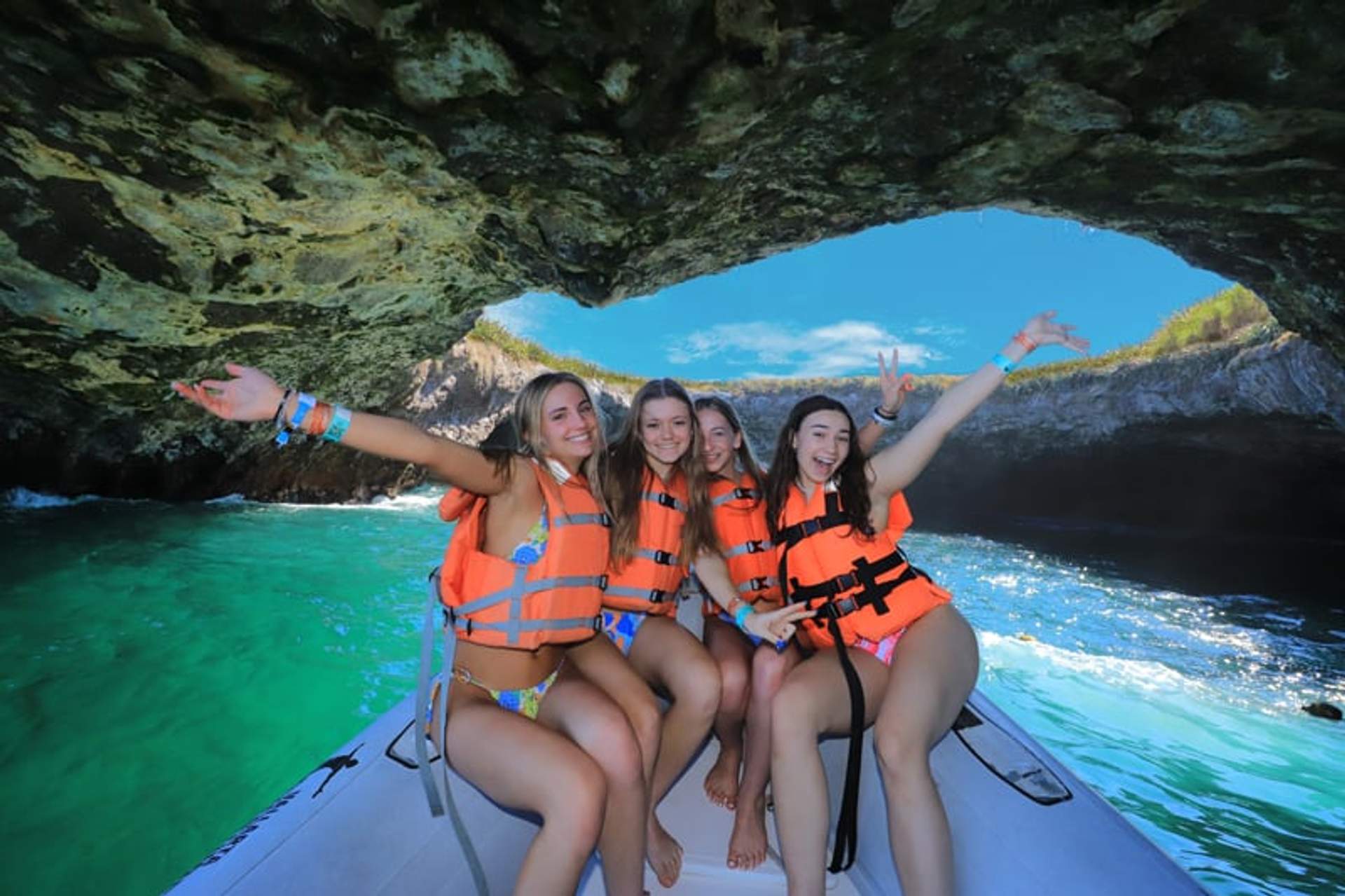
Vallarta Adventures' Marieta Islands Hidden Beach tour is one of the best ways to see this incredible, ecologically diverse Eden on earth, but because a visit to the Hidden Beach requires safe ocean conditions, access to the beach is never guaranteed.
